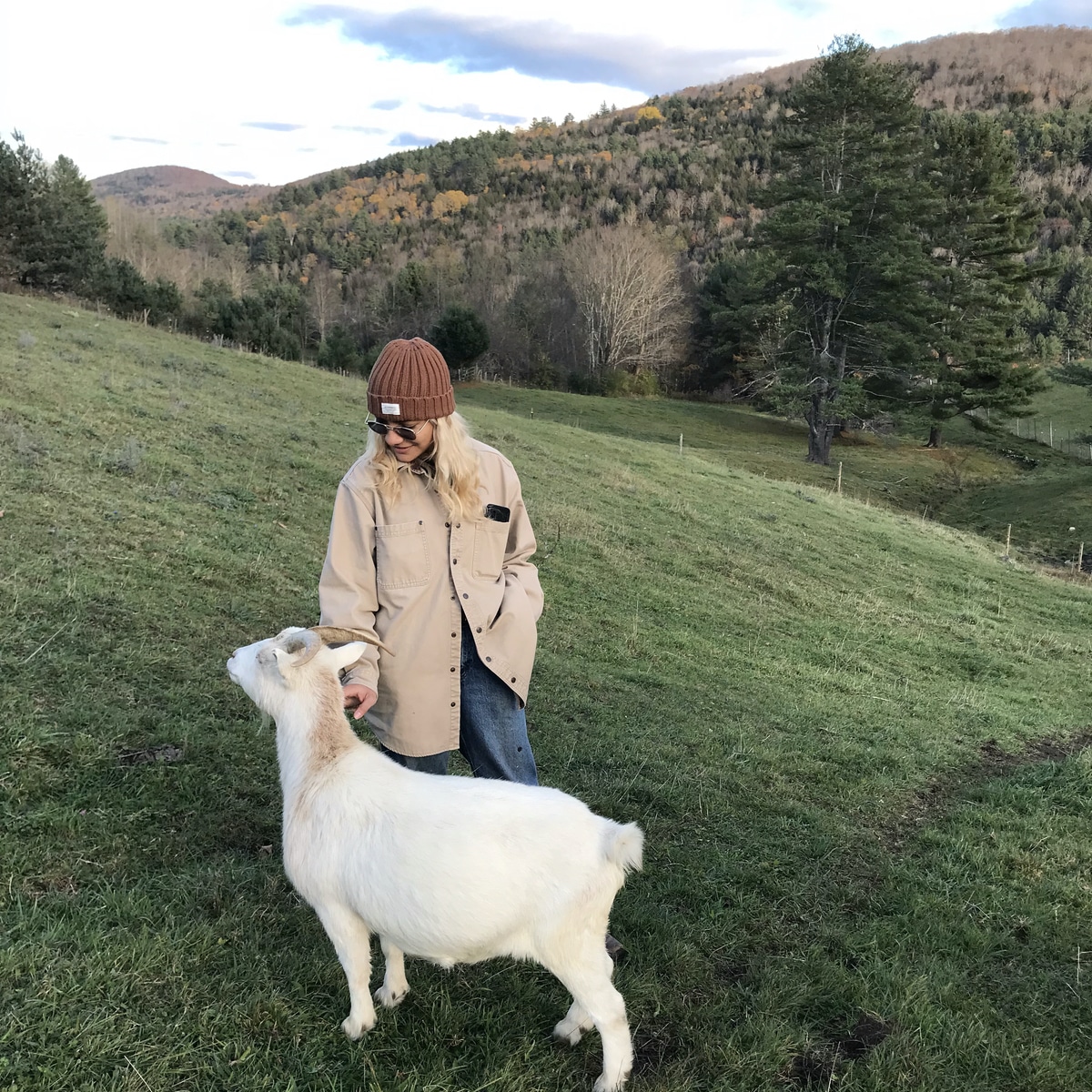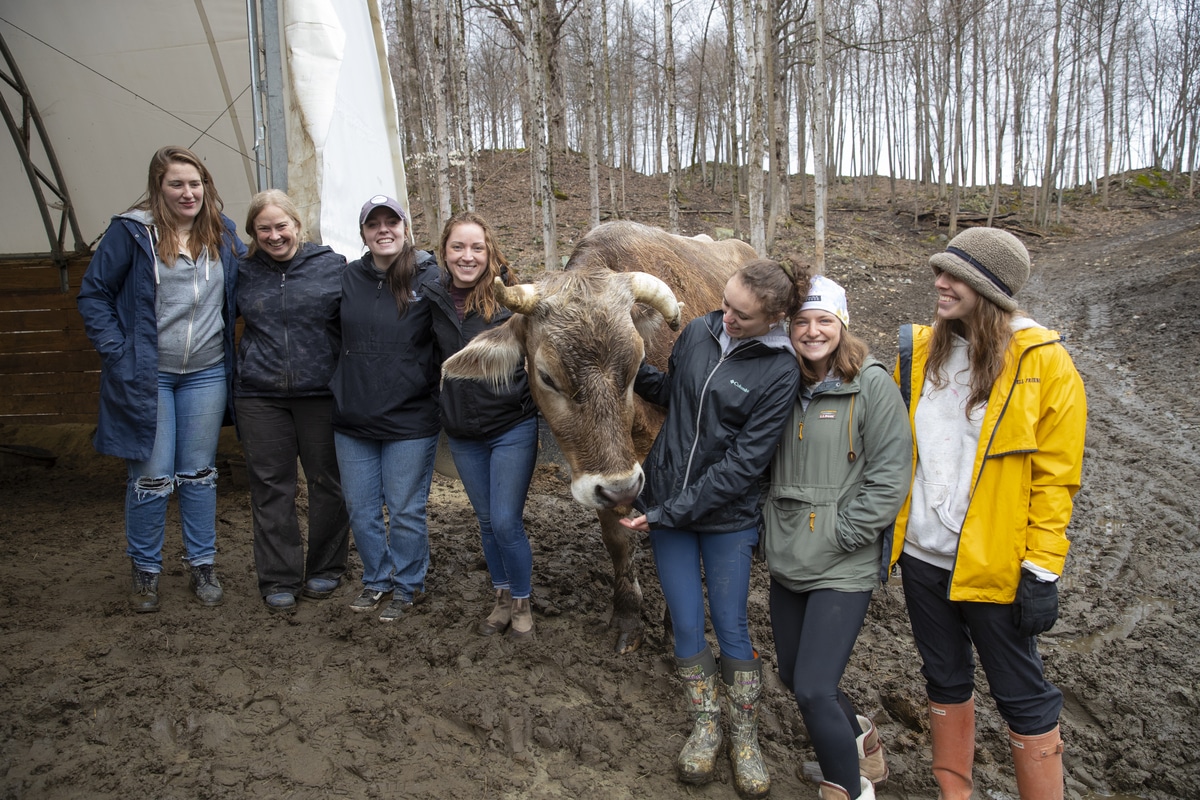
Animal law and policy has had a presence at Vermont Law School (VLS)—and in its renowned Summer Session—for decades. Over the years, animal law and policy offerings have grown. With the launch of the new Animal Law and Policy Institute last year, these offerings are expanding even more. This summer VLS will offer a full slate of animal law and policy courses and host numerous animal law and policy events.
This Summer’s Animal Law and Policy Course Offerings
Vermont is beautiful—and full of stunning wildlife—all year round, but it is especially magical in the summer. And this summer, for the first time ever, VLS is offering at least one animal law and policy course during each of four residential summer terms.
Open to students, professionals, and lifelong learners from across the country and the world, this summer’s animal law courses offer opportunities for anyone interested in the field—whether you’re trying to figure out if studying animal law and policy is the right path for you, looking to up your game in a related field, committed to becoming an animal protection lawyer, considering a dual degree, or simply curious. For students enrolled at other law schools, this is an opportunity to take advantage of additional animal law course offerings and meet leaders in the field. Students can take a single weekend intensive course, come for a couple weeks, or spend the whole summer studying at VLS. Those who don’t need course credits can choose to audit courses for just $400 per credit ($200 per credit for VLS alumni). Vermont Bar Association Continuing Legal Education (CLE) credit is available for all summer courses.
This summer’s residential animal law and policy courses include:

- Animal Ethics and Conservation with professor Heather Rally, supervising veterinarian for Captive Animal Law Enforcement at the PETA Foundation: This new two-week (July 11-21) course explores the challenges associated with applying animal welfare ethics to wildlife management and ecosystem conservation, providing students with the scientific and philosophical tools required to critically evaluate the myriad ethical and animal welfare challenges faced under a variety of wildlife management scenarios.
- Animal Welfare Law with professors Rally and Delcianna Winders, director of VLS’s Animal Law and Policy Institute: Weaving together animal welfare science, ethics, policy, and law, this unique two-week (June 20-30) interdisciplinary course examines the role of law in understanding and reforming the relationship between humans and animals, with an emphasis on captive wildlife.
- Biodiversity Protection with professor David Takacs: This two-week (July 25-August 4) course examines what biodiversity is, the growing threats to it, and U.S. and international laws to combat those threats, focusing on statutes, case law, environmental ethics, and current controversies to highlight legal, scientific, and political strategies for protecting biodiversity.
- Ocean and Coastal Law with leading experts professors Don Baur, Tim Eichenberg, and Sarah Reiter: This popular three-week course (May 31-June 16) is a must for those interested in marine mammal protection, marine species more broadly, and the interaction between environmental and animal protection.
- Undercover Investigations of Animal Operations with professor Margaret York: This one-of-a-kind weekend intensive (June 3-5) course will guide students through a variety of legal considerations related to conducting undercover investigations of animal operations. Students will examine the intersection of criminal law, tort, and ethical issues, as well as what does and does not constitute actionable animal cruelty, evidentiary issues, corporate liability, social justice implications, and more.
Numerous additional summer courses can help students up their animal law and policy game, including Ecology, Environmental Crimes, The Farm Bill, Farmworkers and the Law, and International Law of Food.
Visit VLS’s summer session website to learn more about the program and how to register.
Hot Topics Series
In addition to the course lineup, VLS’s Environmental Law Center is also hosting numerous animal law and policy events this summer, including lunchtime Hot Topics lectures each Tuesday and Thursday at noon Eastern Daylight Time. Talks are held in person on campus in #012 Oakes Hall, and can be viewed live at vermontlaw.edu/live.
Professors Winders and Rally will give a Hot Topics talk titled “Happy Cows? Misunderstood, Under-protected, and Destroying the Environment—A Scientific and Legal Perspective.”
Thanks to generous funding from the American Society for the Prevention of Cruelty to Animals (ASPCA), Hot Topics presentations will also be delivered by VLS two summer animal law media fellows, Marina Bolotnikova—whose work focuses on factory farming and the criminalization of activists who fight it and whose publication credits include The Guardian, The Intercept, The New York Times, and Vox—and Melanie D.G. Kaplan—a freelance journalist and 2021-22 MIT Knight Science Journalism fellow whose work has been featured in The New York Times, The Wall Street Journal, The Washington Post, USA Today, People, and more.
Hot Topics talks are free and open to the public in person, with Vermont Bar Association CLE credit available, and will also be livestreamed. The full line-up for this summer will be posted online soon.
Animals and Restorative Justice Symposium
On July 29, VLS’s Animal Law and Policy Institute and Center for Justice Reform, together with University of San Francisco School of Law’s Justice for Animals program, will host a virtual symposium on Animals and Restorative Justice.
The goal of this event is to bring together practitioners, academics, service providers, researchers, and others who are considering the relationship between animals and restorative justice. This symposium will explore methods of recognizing the harms inflicted on animal victims, rehabilitating offenders, and addressing deeper, structural causes of animal abuse. More information is available in the symposium’s call for proposals.
“Whether it’s online for just an hour or two, or in person for the full summer, we hope you’ll take advantage of this wealth of animal law and policy opportunities,” said Delcianna Winders, director of VLS’s Animal Law and Policy Institute. “Stay tuned for even more to come!”